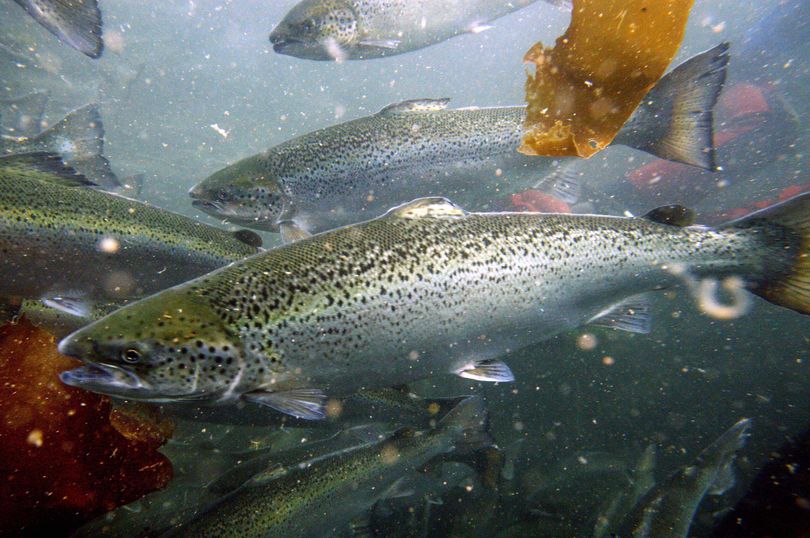Atlantic salmon escape prompts Washington to halt fish farming permits

FISHING -- Washington allows more net-pen salmon farming than any other state. The huge failure of a net pen with more than 300,000 Atlantic salmon in waters esteemed for Pacific salmon is causing the state to rethink the status of fish farms.
Meanwhile, the Lummi Nation today said its fishermen have caught about 20,000 of the escaped Atlantics, bringing in about 200,000 pounds of the non-native species since the tribe declared a state of emergency Thursday. Sport fishermen also are zeroing in on the fishery after the Washington Fish and Wildlife Department encouraged them to catch and keep as many of the non-native salmon as possible, with no limits.
Here's an update from the Associated Press:
SEATTLE (AP) – Washington Gov. Jay Inslee has directed the Department of Ecology to put on hold any new permits for net pens after thousands of Atlantic salmon escaped into Puget Sound earlier this month from a damaged salmon farm.
State officials also announced Saturday the formation of a response team comprised of the departments of Natural Resources, Fish and Wildlife, and Ecology. The team also includes the Office of the Governor and state Emergency Management Division.
It’s not yet clear how many non-native Atlantic salmon escaped into Puget Sound from Canada-based Cooke Aquaculture’s salmon farm off Cypress Island. Officials say the pens held about 305,000 fish.
“The release of net pen-raised Atlantic salmon into Washington’s waters has created an emergency situation that has state agencies working together to protect the health of our salmon,” Inslee said in a statement.
He said the company must stop additional escapes, recover escaped fish and compensate those working to capture the escaped fish. Anglers are being urged to catch as many of the escaped salmon as possible. Some of the fish weigh up to 10 pounds.
“Incident Command resources from all three agencies will begin to arrive in Anacortes today,” state officials said in a separate statement also released on Saturday.
Cori Simmons, Incident Command spokeswoman, said the team will be fully assembled by Saturday evening. She said Cooke Aquaculture has been working on the cleanup of the damaged net pens, but no numbers of escaped fish were available.
“Beginning this morning they stabilized pens and were getting information out of each pen,” she said. “It’s my understanding there are a lot of dead fish.”
The state has also set up a website that officials say will be updated “as we learn more about this incident and work with tribes and our fellow state agencies to find a solution to this serious threat to our native salmon species.”
Cooke Aquaculture didn’t respond to an email from The Associated Press on Saturday. The company has previously blamed high tides and currents that damaged the salmon farm leading to the escape of fish.
The release at Cooke Aquaculture’s facility comes as the company is proposing new expanded commercial facility in the Strait of Juan de Fuca in Washington state.
The company operates five salmon farms in Washington that it acquired last year, and would build 14 floating circular net pens about 1 1/2 miles (1.61 kilometers) offshore. It would move current operations from Port Angeles Harbor and increase production by 20 percent. The project is in the permitting phase.
But Inslee’s directive halting new permits for net pens appears to put that project in jeopardy.
Washington has the largest marine finfish aquaculture industry in the U.S. with farms producing about 17 million pounds of Atlantic salmon each year, according to the state.